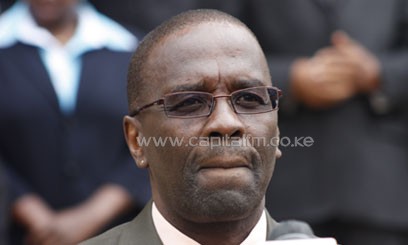NAIROBI Kenya, Jul 4 – Chief Justice Willy Mutunga has announced that judges will forgo their annual colloquium this year.
He said that instead the one week when the judges would have held their colloquium will be dedicated to intense service to reduce case backlog in criminal matters at the High Court and enhance access to criminal justice.
Speaking on Thursday during the inauguration of the Court of Appeal in Malindi, Mutunga said devolution will help the Judiciary realise its true and proper intent as a people-driven mechanism in which it is publicly accountable.
“When I joined the Judiciary slightly over two years ago, the case backlog was one of the most obstinate problems facing the institution. At the time, the Court of Appeal had over 6,000 pending cases, the judges were only half of the maximum 14 allowed by law, and the rules of procedure were extremely rigid,” he recalled.
“Since then, the law has been amended to cap the number of judges of the Court of Appeal at 30. The Judicial Service Commission has recruited 22 new judges for this court, but the vetting of judges and magistrates board has found four judges who were serving before unsuitable to continue.”
He, however, added that rules of procedure have been revised and continue to be subjected to internal review to ease access to justice as well as ensure that justice is done without undue regard to technicalities – as commanded by the Constitution.
He said that they were decentralising hitherto centralised administrative functions so that Nairobi becomes a fit-for-purpose advisory and coordination unit, “rather than the all-powerful controller of resources and purveyor of “official decisions” that has characterised our past.”
The Chief Justice added that devolution was not simply about financial and resource accountability to central authorities, but results for, and accountability to, Kenyans.
“If anyone needed proof that decentralisation works, here it is: In the two months that the Court of Appeal has been decentralised to Nyeri, Kisumu and Malindi nearly 300 cases have been finalised,” he noted.
“In Malindi, some 77 cases have been finalised and 81 new ones filed in the past two months. Join me in expressing our collective gratitude to the tireless efforts of the Court of Appeal judges based in Malindi – Justice Erastus Githinji, who is the presiding judge, Justice Asike Makhandia, and Justice Fatuma Sichale.”
In the past two weeks, the Court of Appeal has been inaugurated in Nyeri and Kisumu.
The Chief Justice noted that the Judiciary had increased it’s efficiency citing that between January and May, this year, a total of 424 were disposed of compared to 304 between June–December last year.
He said all High Court judges will go to those stations in the country that are plagued by the worst case delays in criminal appeals such as Nairobi, Nakuru, Eldoret, Mombasa and Meru.
Besides the urgent imperative of addressing the case backlog, the establishment of the decentralised Court of Appeal anticipates an increase in the number of cases that will emerge from establishing a High Court station in every county and a magistrate’s court in every district as required by law.
Already there are 20 High court stations that have been established in the country.
He said the court building in Malindi can accommodate the High Court as well as the Court of Appeal while the Judiciary makes the necessary arrangements for a Mombasa presence.
“We are alive to the concerns about transporting prisoners over long distances and the inconvenience it may cause to advocates, but weighing this against the old practice of hearing cases for only two weeks in a year, the lesser evil is to begin work immediately.”



































